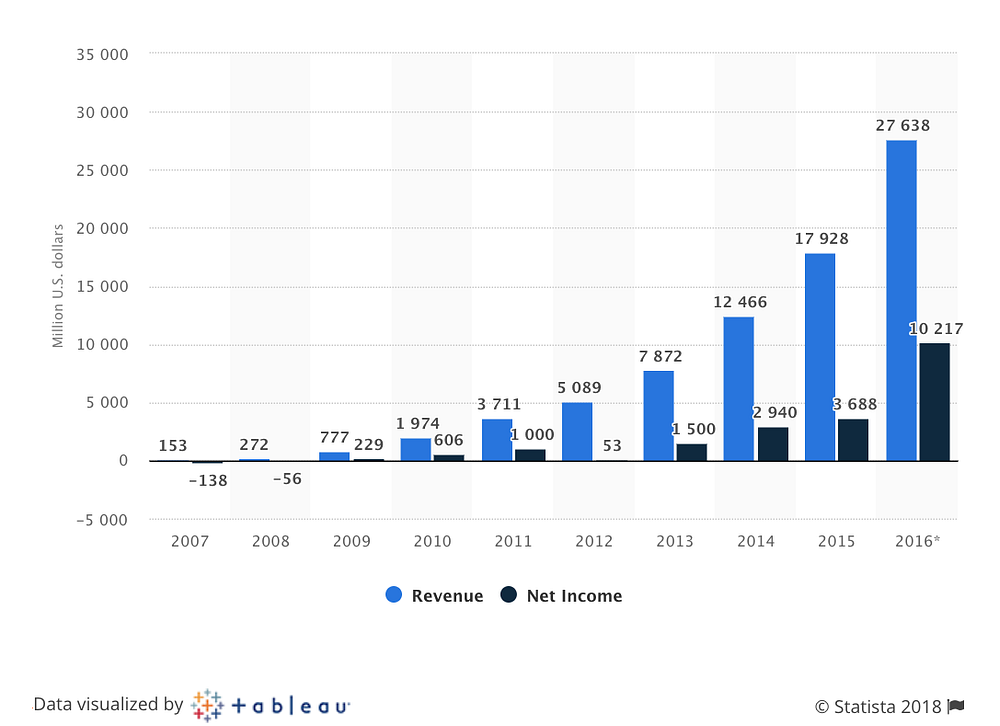This time, in addition to pointing out some of the issues surrounding the giant platforms, Mr. McNamee has a list of eight suggestions for addressing them, a couple of which I'll highlight:
...Sixth, we need a limit on the commercial exploitation of consumer data by internet platforms. Customers understand that their “free” use of platforms like Facebook and Google gives the platforms license to exploit personal data. The problem is that platforms are using that data in ways consumers do not understand, and might not accept if they did. For example, Google bought a huge trove of credit card data earlier this year. Facebook uses image-recognition software and third-party tags to identify users in contexts without their involvement and where they might prefer to be anonymous. Not only do the platforms use your data on their own sites, but they also lease it to third parties to use all over the internet. And they will use that data forever, unless someone tells them to stop.FT Alphaville's Kadhim Shubber has the link and our hat tip.
There should be a statute of limitations on the use of consumer data by a platform and its customers. Perhaps that limit should be ninety days, perhaps a year. But at some point, users must have the right to renegotiate the terms of how their data is used.
Seventh, consumers, not the platforms, should own their own data. In the case of Facebook, this includes posts, friends, and events—in short, the entire social graph. Users created this data, so they should have the right to export it to other social networks. Given inertia and the convenience of Facebook, I wouldn’t expect this reform to trigger a mass flight of users. Instead, the likely outcome would be an explosion of innovation and entrepreneurship. Facebook is so powerful that most new entrants would avoid head-on competition in favor of creating sustainable differentiation. Start-ups and established players would build new products that incorporate people’s existing social graphs, forcing Facebook to compete again. It would be analogous to the regulation of the AT&T monopoly’s long-distance business, which led to lower prices and better service for consumers....
Now on to the headline story from NewCo Media:
Facebook’s fundamental problem is not foreign interference, spam bots, trolls, or fame mongers. It’s the company’s core business model, and abandoning it is not an option.
Facebook's annual revenue and net income from 2007 to 2016 (in million U.S. dollars)

Mark Zuckerberg has announced his annual “personal challenge,” which in the past has ranged from eating meat he personally kills to learning Mandarin.This year, his personal challenge isn’t personal at all. It’s all business: He plans to fix Facebook.In his short but impactful post, Zuckerberg notes that when he started doing personal challenges in 2009, Facebook did not have “a sustainable business model,” so his first pledge was to wear a tie all year, so as to focus himself on finding that model.
He sure as hell did find that model: data-driven audience-based advertising, but more on that in a minute. In his post, Zuckerberg notes that 2018 feels “a lot like that first year,” adding “Facebook has a lot of work to do — whether it’s protecting our community from abuse and hate, defending against interference by nation states, or making sure that time spent on Facebook is time well spent….My personal challenge for 2018 is to focus on fixing these important issues.”The post is worthy of a doctoral dissertation. I’ve read it over and over, and would love, at some point, to break it down paragraph by paragraph. Maybe I’ll get to that someday, but first I want to emphatically state something it seems no one else is saying (at least not in mainstream press coverage of the post):You cannot fix Facebook without completely gutting its advertising-driven business model.
And because he is required by Wall Street to put his shareholders above all else, there’s no way in hell Zuckerberg will do that.
Put another way, Facebook has gotten too big to pivot to a new, more “sustainable” business model. The company is on track to earn at least $16 billion in profits in 2017. Wherever the number lands (earnings for the year come out later this month), it’s at least 50 percent growth on the year before. As a stock, Facebook is breaking out in a massive way — it’s priced at roughly 36 times earnings — a healthy premium to the S&P’s average of around 25....MORE